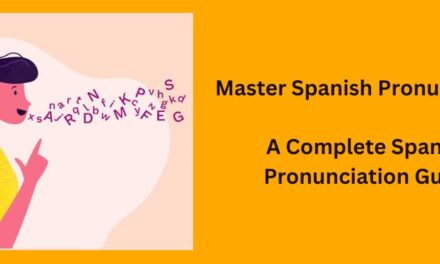How to Make Language Exchange Partnerships Work

Language exchange partners are a great way to immerse yourself in a new language while making friends worldwide.
But how do you build an effective partnership that improves your abilities over time? Follow these tips to ensure your language exchanges are productive, engaging and fun for both parties.
Find Partners with Shared Interests
The first step is locating a language exchange partner that is a good match for your goals and personality. Look for partners who share some common interests and hobbies beyond just learning the same language.
This gives you natural things to chat about.
- On partner matching sites, use filters like age, country and interests to find promising candidates with backgrounds similar to yours.
- Check profiles thoroughly and only reach out to users who seem to have some overlapping passions, like travel, art, sports or a specific career field.
- Ask potential partners questions to gauge compatibility – “What do you like to do in your free time?” “What subjects do you enjoy studying?”.
- Avoid very short or blank profiles – these users are less likely to invest in thoughtful exchanges.
- Don’t limit yourself to just speakers in one country. Variety makes exchanges more fun and interesting.
Partners don’t have to become best friends, but having some common ground helps conversations flow smoothly and enjoyably.
Make sure you and your partner are able to communicate at a similar level in each language. Having similar language abilities and learning goals will make conversations flow better.
Set a Schedule and Stick to It
To see significant progress in your language skills, you need to commit to meeting consistently for substantial periods of time – once a week for at least an hour is ideal.
Cancelling meetings or showing up late can derail the partnership quickly. Show your partner that you respect their time and effort.
Stick to the schedule you agreed upon and give ample notice if you do need to reschedule. Consistent exchanges lead to better rapport, understanding and progress.
- Decide on set days and times to connect, such as Tuesdays and Fridays from 7-8 PM your time. Routine is key.
- Start with just 1 or 2 short 15-30 minute sessions per week. Slowly increase frequency and length as you become comfortable conversing.
- Confirm the schedule over text/chat and gently remind each other before calls if one partner is forgetful.
- If you need to reschedule occasionally that’s fine, but avoid cancelling sessions frequently.
- If a partner stops showing up, don’t waste your time – politely end the partnership and find someone more reliable.
Regular conversations keep your language skills sharp while steady rapport strengthens friendships. Make exchanges part of your routine.
Take Turns Practicing Each Language
To keep exchanges reciprocal, dedicate half of each session to one language and switch for the other half.
- Set a timer to split your scheduled time in two. When it goes off, switch languages.
- Remind each other kindly if one partner starts dominating in their native language without giving the other a turn.
- Initially one partner may need more help, but the balance should even out over time. Monitor this.
- If you get stuck expressing something complex, ask “How do you say X in your language?” to prompt your partner to teach you the right phrases.
- Occasionally spend a full session using one language only. This pushes you to speak it exclusively.
The back-and-forth structure ensures both partners get immersion practice in their target language.
Find Ways to Keep Conversations Flowing
Learning a new language is exciting in the beginning, but it can become challenging and frustrating at times. When you hit plateaus in your learning, it’s important to maintain a positive attitude and remind yourself of the progress you’ve made.
Come prepared with new topics to discuss each session to keep things interesting. Suggest trying a new coffee shop or going for a walk together.
Doing activities together can liven up the practice.
Stalling conversations lead to frustration. Use tactics to keep them energetic and natural:
- Prepare some standard questions in advance to ask when conversation lulls, like “What are your plans for the weekend?”
- Discuss current news and events in your countries – share opinions and perspectives.
- Watch a show together then chat about it. Discuss characters, plots, and favorite moments.
- Pick a topic like sports, cooking or politics and teach each other related terms and expressions in your native languages.
- Play online games together while chatting, like geo-guessing games, trivia apps, jigsaw puzzles or card games.
- Quiz each other on vocabulary words you’ve been studying and share examples of how to use them in sentences.
The more engaging and interactive your exchanges are, the faster you will learn while building a true friendship.
Provide Gentle Corrections
Don’t be shy about kindly providing feedback to your partner on how they can improve the exchange for you. If your partner talks too much in their native language, ask them to use more of the language you’re trying to practice.
If the pace is too advanced, say you need to slow down and focus on the basics. Request they rephrase statements you don’t understand.
As you talk, gently correct each other’s mistakes to help improve:
- Only interrupt to correct significant errors. Let minor grammatical or pronunciation issues slide to keep conversation flowing smoothly.
- Phrase corrections like a question to soften them, like “Wouldn’t you say this instead…?”. Avoid blunt statements like “That’s wrong.”
- If unsure about a correction, ask “Does that sound right to you?” rather than assume. We all make mistakes.
- When you get corrected, thank your partner for the help rather than feeling embarrassed. It will improve your skills.
- Request clarification like “Sorry, can you explain this grammar rule again? I want to fully understand.”
By politely exchanging corrections and explanations, you’ll clear up areas of confusion and improve each other’s vocabulary, grammar and pronunciation.
Track Your Progress
To see your language skills evolving, keep records about your exchanges:
- Note new vocabulary and phrases you learned during each session. Review the lists periodically.
- Record your conversations to listen back to yourself. Notice areas you stumble.
- Save chat logs and use a service like LangCorrect.com to identify grammar issues.
- Journal after sessions about what went well or poorly. Set goals to improve.
- Take periodic quizzes testing your listening comprehension, vocabulary size, etc. Measure concrete progress.
- Set language learning goals and share them with your partner. Help each other accomplish them.
- Occasionally switch partners to notice contrasts in your abilities at different times.
Tracking progress keeps exchanges goal-oriented. Celebrate milestones together as your friendship and language skills grow!
Stay Positive Through Challenges
Language learning has ups and downs. Keep a growth mindset during the inevitable challenges:
- Don’t get frustrated by occasional awkward silences – they happen even between fluent speakers.
- If your conversations feel stilted or boring, reassess your approach together. Find ways to reinvigorate the partnership.
- During slow periods of progress, focus on consolidating abilities. Increase grammar drills and vocabulary size.
- If one partner improves much faster, celebrate their achievements and ask for tips! Every learner is different.
- Remind each other that persistent practice leads to fluency, even if the timeline is unclear.
- Don’t abandon ship after arguments or confusion. Talk through issues. The friendship is valuable.
- Thank each other for investing the time and energy. Appreciation goes a long way.
With patience and a positive attitude, language exchange partnerships can power you towards fluency while forging lasting bonds!
Switching Up Partners
While consistency is important, occasionally changing partners has benefits too:
- After mastering basics with one partner, switch to get exposure to new accents, dialects, and speech patterns.
- If you feel you’ve plateaued with one partner, a fresh voice can reinvigorate your motivation and progress.
- Trying new formats like group calls or in-person meetings expands your practice styles.
- Connect with partners in various countries to learn region-specific phrases and cultural information.
- Sample partners with diverse experience levels – from beginners to advanced speakers.
- Vary ages and genders for a breadth of perspectives and conversation topics.
- Keep touch with past partners through social media. You can collaborate again in the future.
Embrace variety while also maintaining a few regular partners you sync with. Different personalities and styles of interaction will expand your fluency.
Exploring Cultural Topics
One major benefit of a language exchange is gaining cultural insights you can’t learn in a textbook. Come prepared with questions about your partner’s traditions, holidays, food, current events, pop culture, history, or any topic that provides cross-cultural perspectives.
Ask follow up questions to dig deeper into interesting subjects. You’ll gain useful vocabulary and practice discussing ideas in the target language.
Keep an open mind and avoid judgment.
Don’t just talk about your own culture’s perspectives – make it a two-way dialogue. Also, be aware that some topics like politics or religion may be controversial. Tread lightly with cultural practices you may not relate to or understand at first.
Mixing Conversation with Grammar and Vocabulary Practice
While a language exchange should focus on natural conversation, it’s also helpful to incorporate some explicit vocabulary or grammar practice at times.
Before meeting, identify language areas you need work on, like using past tense properly or expanding your vocabulary around a certain topic. Have your partner help explain challenging grammar concepts or the nuances between similar words.
Ask them to correct any major grammar mistakes they notice in a constructive way. You can also try short language games like charades or writing prompts focused on target language.
Mixing natural, immersive conversation with brief grammar review will help you improve while keeping the exchange lively and engaging.
Conclusion
Forming a language exchange takes effort, but it’s one of the most rewarding ways to gain fluency. By setting expectations upfront, committing to regular practice, having two-way cultural dialogues, and building a friendship, your language exchange will thrive.
Immerse yourself in the learning process and enjoy this unique opportunity to connect across cultures and languages.
Invest time finding the right partners and approach exchanges with patience and enthusiasm. Consistent conversation practice can rapidly boost your fluency to new levels!











